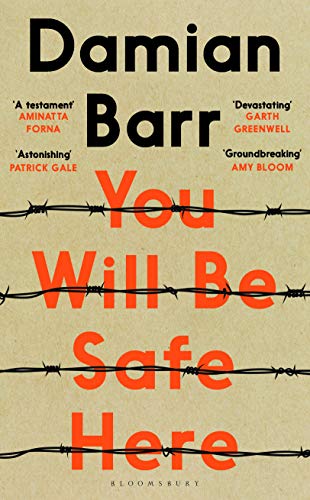You Will Be Safe Here
Cruelty begets cruelty in Damian Barr’s haunting novel. Set in South Africa, the book skillfully juxtaposes past and present to show how the sins of one generation perpetuate evil in those to come. Its U.S. release offers a chance to educate ourselves about racism (as well as homophobia) and its roots in this faraway country, and to compare it with our nation’s own shameful past—and present.
The book begins in 1901 during the Second Boer War, in which the British Empire fought off rebellion in two South African states. English soldiers force Sarah van der Watt and her young son, Fred, off their farm and into the squalid Bloemfontaine concentration camp. Her diary, in the form of a letter to her husband, Samuel, a Boer fighting with the rebels, reveals racist attitudes toward the black workers on their farm, who have also been imprisoned.
The tale then jumps ahead to the 2010 imprisonment of a white boy, Willem, in a “camp” run by a man called the General, a descendant of the van der Watts. Willem is sent away by his mother and her racist, macho boyfriend. The boyfriend suspects that Willem might be gay and hopes the military-style camp will make a “man” out of him. Before he goes, a school field trip to the Anglo Boer-War Museum in Bloemfontaine helps tie past to present: Willem learns of little Fred van der Watt’s death during his internment, a fate he will soon face at the hands of the sadistic General.
Barr’s debut novel has gotten rave reviews, and with good reason: it’s a powerful, skillfully told story that sheds light on the ages-old “man versus man” conflict and asks whether we can truly ever break free of the vicious cycle of hatred—or if it will break us, instead.










